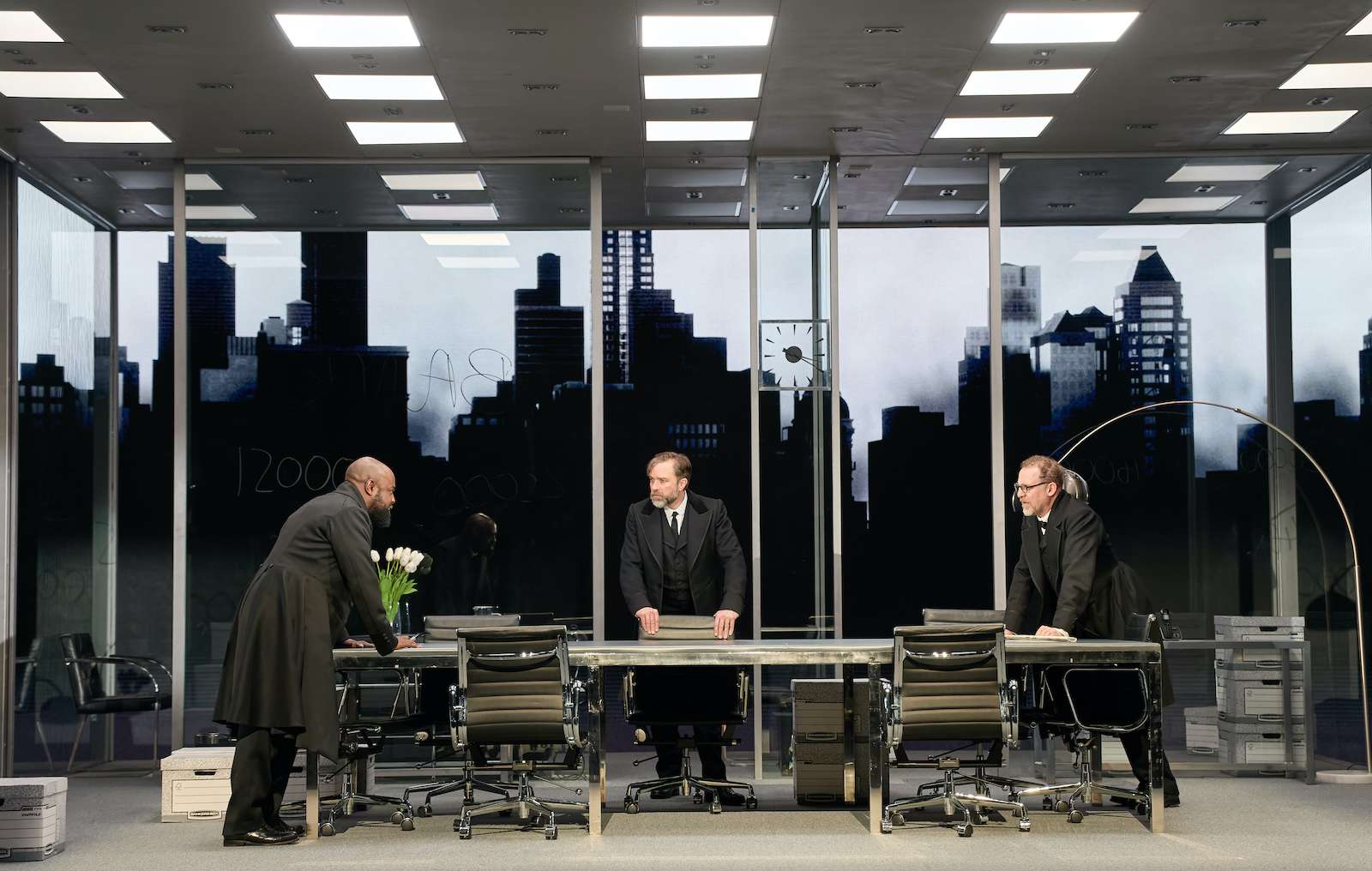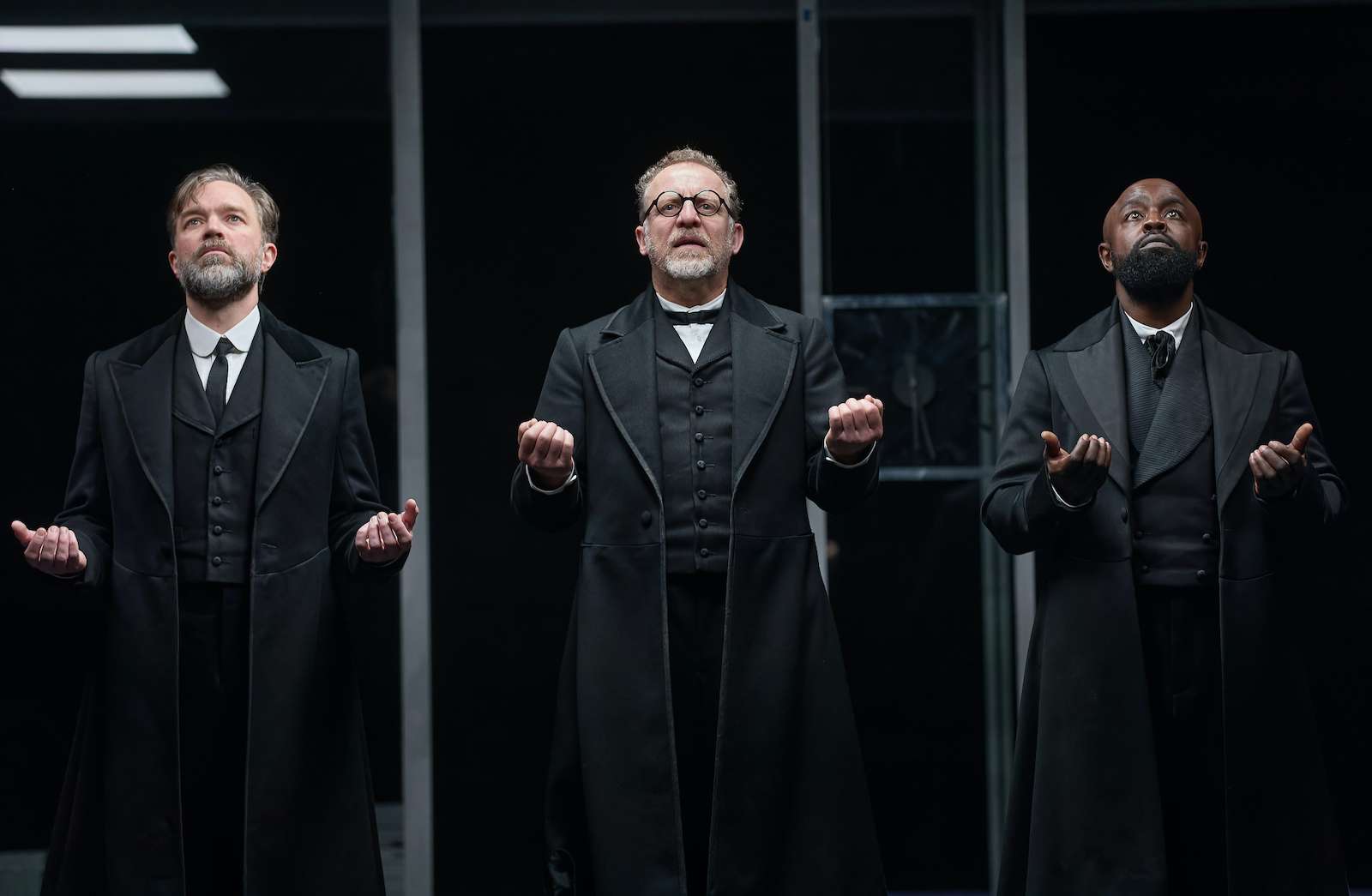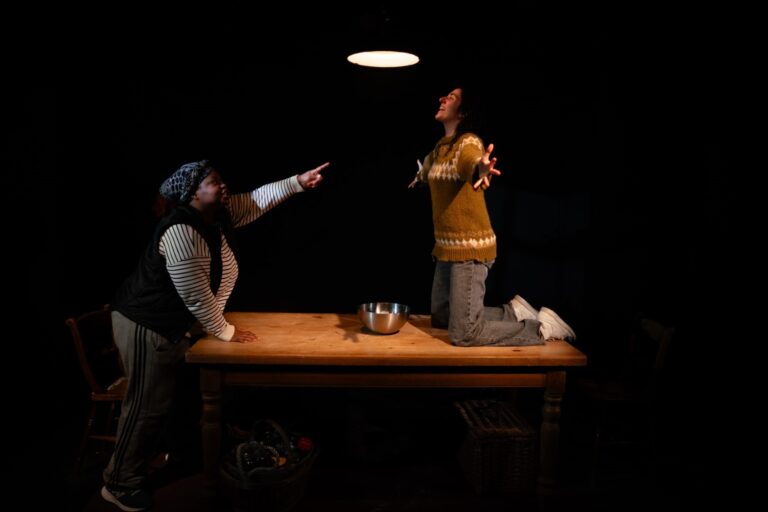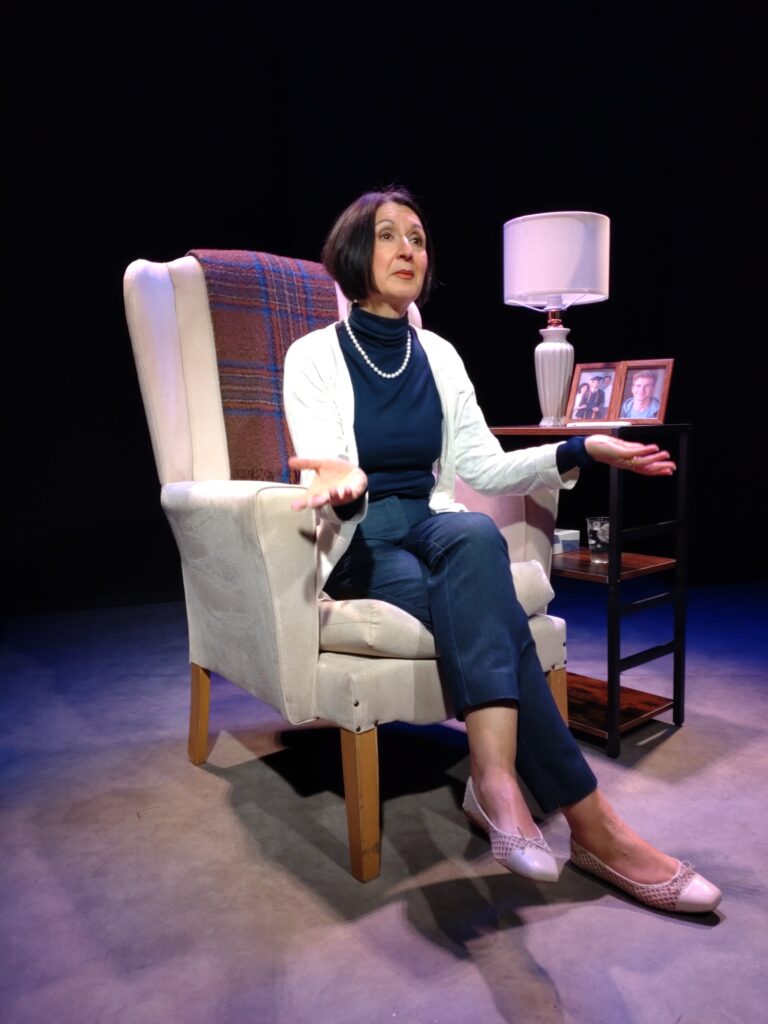After an award-winning run on Broadway, Stefano Massini’s The Lehman Trilogy has returned to London. And what a return it is, writes Michael Holland.
The trilogy is the three acts that tell the story of the three Lehman brothers who began and built one of the largest financial businesses in history – Henry, Emanuel and Mayer.
After arriving from Bavaria in 1844, Henry opens a fabric store in Alabama. When Emanuel and Mayer join him they decide to branch out into cotton in order to buy from the 24 plantations in the southern state and sell to the north. Business boomed until the pro-slavery states left the Union and Abraham Lincoln freed all the slaves while civil war raged all around. With the cotton fields ablaze the brothers moved on to trading coffee.
Act 2 moves us on to the rise of the brothers’ offspring. Lehman Brothers is now a bank in New York with Philip and Herbert partners in the firm alongside their fathers.
They turned to financing the burgeoning railway system, with Philip negotiating the deal and pretty much stepping up into pole position in the firm’s power stakes. He then takes the Lehmans into Alaskan oil, then tobacco, while his cousin Herbert continually questions the way the firm is going.
One by one the original trio die off. At first, they honoured a death with a traditional Jewish shiva that took a week of mourning. As another died the long goodbye was cut to three days so they did not have to close the offices down. Eventually, a farewell to the dead is dealt with in minutes.
Philip’s son, Bobbie, instigates a new direction into airlines, films and cigarettes; Herbert leaves to become governor of New York. The Lehman Corporation as an investment company is created just before the Wall Street Crash when many stockbrokers took their own lives rather than face their clients and a bleak future. Lehmans survived.
The third act brings us through the war years of the 20th century when they moved into arms, followed by the downfall of the firm in the first decade of the 21st century when Lehmans became entangled in the subprime mortgage crisis that bankrupted them and caused shockwaves around the world.
The Lehman story is told in a series of business-like bullet points of dates and numbers, each of the characters delivering the information straight to the audience; there are no conversations as such, just facts, facts, facts and figures. They even speak the stage directions: ‘Bobbie bites his lip and I smile while Philip loosens his tie’… ‘They shake hands’, and so on. It is as if they are not human.

Sam Mendes’ direction allows the three tremendous actors – Michael Balogun, Hadley Fraser and Nigel Lindsay – to bring out the best in Ben Power’s adaptation as they play the original three Lehmans and every other character, quickly moving from Southern gentleman to crying baby; feisty female to hardheaded business magnate, with hardly any props other than the cardboard boxes which held their files and accounts, which were utilised to become steps and walls at various times during the evening.
The Es Devlin set is remarkable – A revolving transparent box that allows us to see right into the heart of how the Lehmans work. It is constantly turning just like the business of making money never stops, while allowing the audience to see right through to the black and white projections that change with the times and places. The whole affair is totally monochrome, from the brothers’ outfits to the furniture. There is no colour in the Lehmans’ world, it is just capitalism at its worst and Massini does not try to make them nice people but highlights their obsession with money. The play does not show the underhand dealing that led to their eventual downfall, or the news programmes showing sacked employees leaving the offices with their belongings in a cardboard box, which became the defining image of the financial collapse. The audience is expected to know that to understand the powerful finale.
Gillian Lynne Theatre, Drury Lane, WC2B 5PW until May 20th. Times: Mon-Sat 7pm; Thur & Sat matinees 1pm. Admission: £10 – £184.50.
Booking: www.lwtheatres.co.uk






